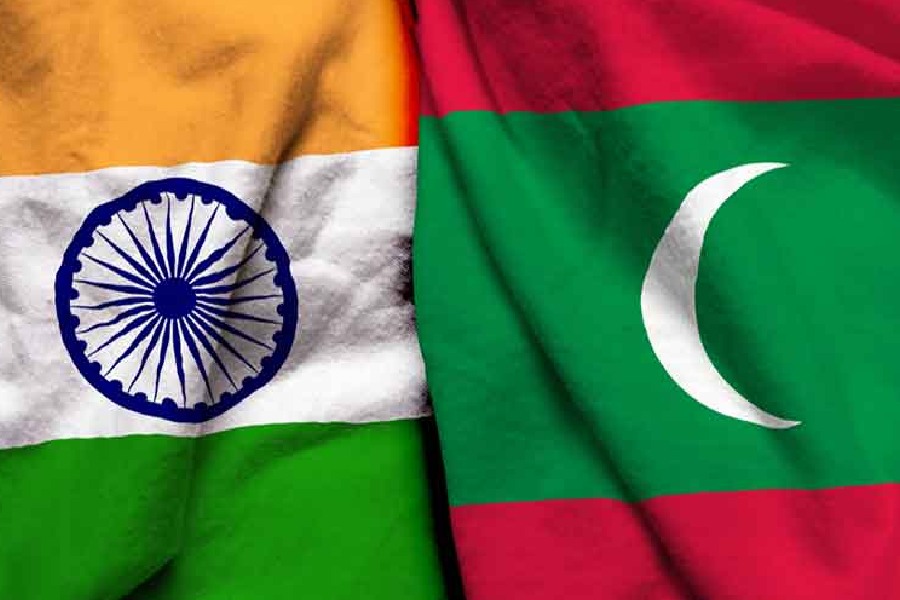The ruling coalition of Progressive Party of Maldives (PPM) and the People's National Congress (PNC) deployed anti-India sentiments and attempted to spread disinformation around this theme during the on the 2023 presidential elections, according to a report issued by the European Union.
The European Election Observation Mission (EU EOM) to Maldives published its final report on Tuesday on the two rounds of election that took place on September 9 and 30 last year.
Following an 11-week-long observation in the archipelagic nation in the Indian Ocean, upon the invitation of national authorities, the EU EOM found the campaign run by the PPM-PNC coalition was based on fears of Indian influences on the nation.
"EU EOM observers noted instances of derogatory language, directed towards the president, on the side of PPM-PNC,” reads the report.
“Their campaign included anti-Indian sentiments, based on fears of Indian influences and anxiety regarding a presence of Indian military personnel inside the country. This theme was subject to multiple online disinformation attempts,” it said.
The EU mission noted that political and campaign fundraising and financial expenditure lack transparency and effective oversight. The EU EOM also recorded the political partisanship of the media, including public service media, while there were some indications of information manipulation in social media.
"Both camps also engaged in negative campaigning, suggesting ‘discontinued development and the return of a repressive PPM government’ on the one side, and alleging ‘unfulfilled government promises, corruption and foreign intervention’ on the other, with accusations of allowing the presence of Indian military emphasised repeatedly,” their report notes.
The incumbent president at the time, Ibrahim Mohamed Solih of the Maldivian Democratic Party (MDP), was seeking re-election last year in the country’s presidential system of government. PNC’s Mohamed Muizzu, backed by the Opposition PPM-PNC coalition, beat him to win the election with 54 per cent of the votes.
Chief Observer Nacho Sánchez Amor, Member of the European Parliament, stated: “The presidential election was technically well-administered and professionally delivered by the Elections Commission of Maldives (ECM).
"The legal framework provides for genuine elections; voter and candidate registration were inclusive processes; and a record number of eight candidates was registered.
"Women, however, were largely absent from the political competition and significantly underrepresented in the administration of the election. Other flaws in the process were the widely acknowledged practices of vote-buying and instrumentalisation of public office, elements which undermined equity and fairness in campaigning.” The EU EOM report offers 20 recommendations for the improvement of future elections in Maldives, including fact-checking initiatives to combat misinformation and measures to promote women to more leadership positions in public and political life.
The report comes amidst an ongoing controversy which saw India summon the High Commissioner of Maldives after a row broke out over derogatory posts made by three deputy ministers after Prime Minister Narendra Modi’s Lakshwadeep visit. A Maldives foreign ministry spokesperson said the comments were personal and did not represent the views of the government.
Except for the headline, this story has not been edited by The Telegraph Online staff and has been published from a syndicated feed.











